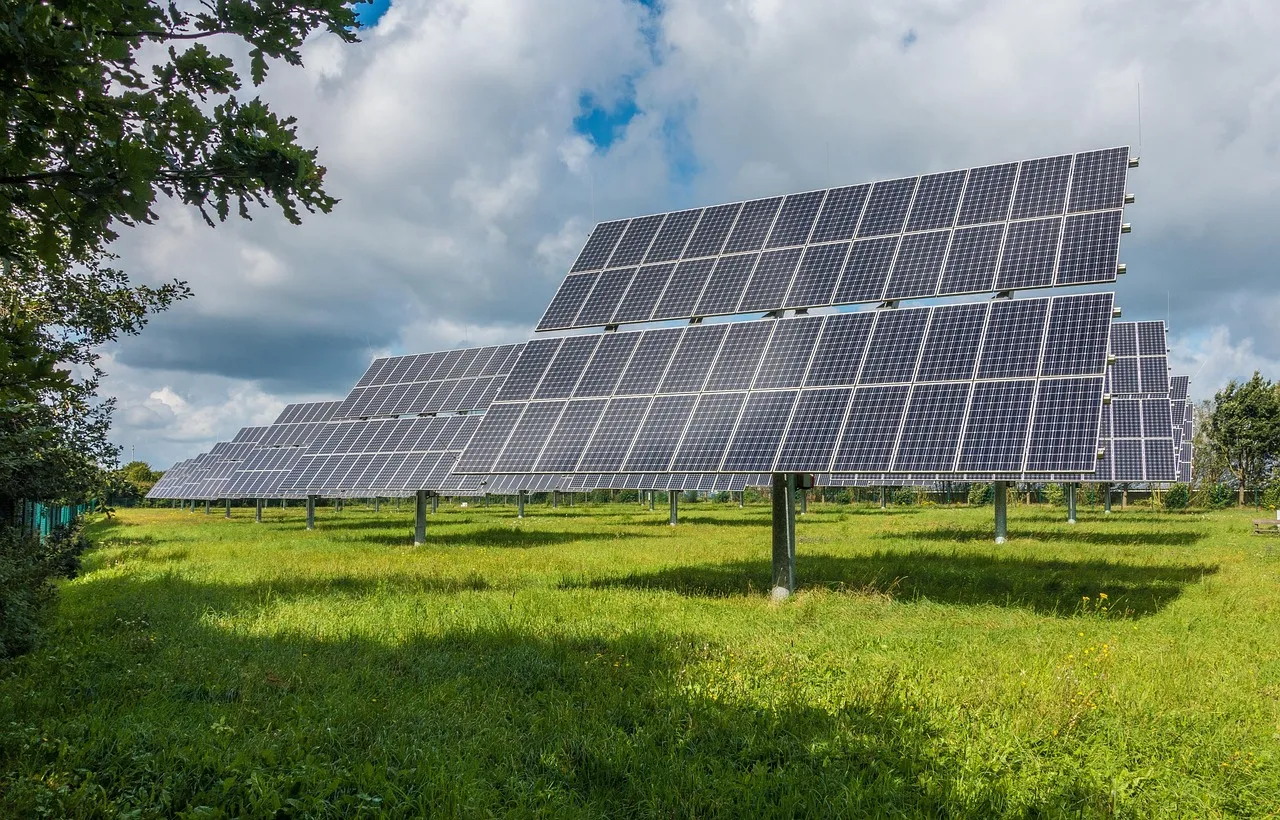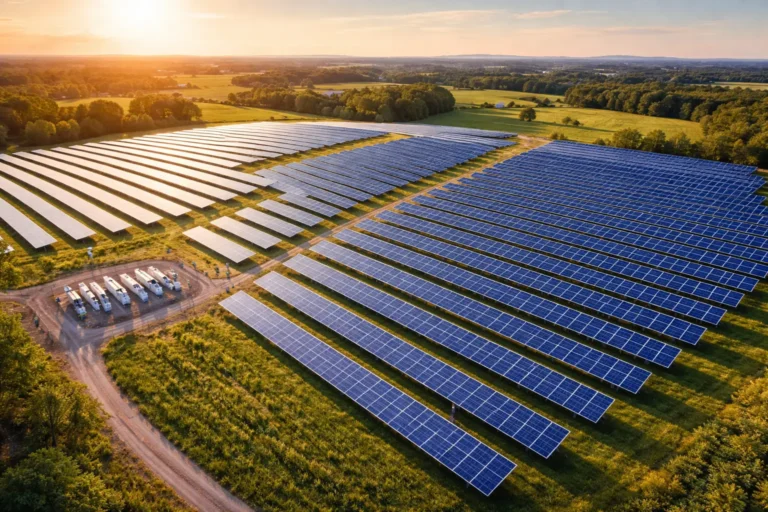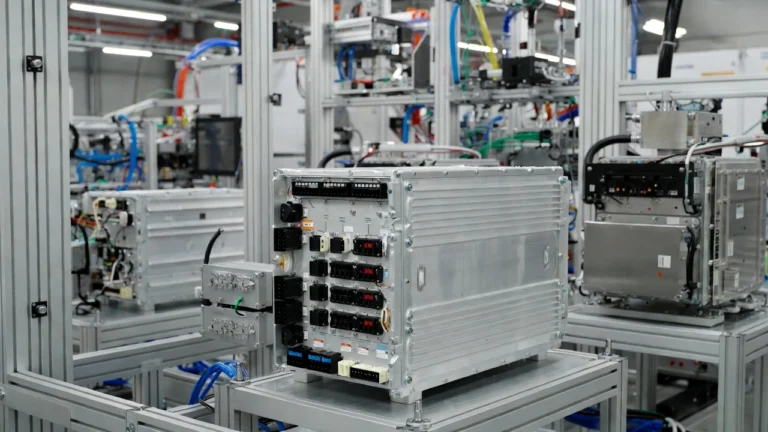
Aspen Power Expands Community Solar Presence with Acquisition of Illinois Projects
Aspen Power, a distributed generation platform focused on building the clean energy future, has announced the acquisition of two community solar projects in Illinois. With a combined capacity of 13.9 megawatts direct current (MWdc), the projects—located in Grafton and Rochester—are expected to generate more than 19 million kilowatt-hours (kWh) of renewable energy annually. This output is equivalent to providing clean electricity for approximately 2,770 homes each year, marking a significant contribution to Illinois’ renewable energy landscape.
The transaction, completed with Greenwood Sustainable Infrastructure (GSI), expands Aspen Power’s growing portfolio of solar assets across the United States. These new projects are part of a broader collection of sites in Illinois and New York, including developments nearing completion. For Aspen Power, the acquisition demonstrates its ongoing commitment to scaling distributed generation while aligning with state and federal policies designed to accelerate the clean energy transition.
Illinois: A Growing Hub for Community Solar
Illinois has emerged as one of the most dynamic community solar markets in the country. Much of this growth is attributed to the Climate and Equitable Jobs Act (CEJA), landmark legislation passed in 2021 that aims to move Illinois toward 100% clean energy by 2050. CEJA not only incentivizes renewable energy development but also prioritizes equitable access, particularly for low- and moderate-income households that have historically been underserved in the clean energy transition.
Community solar—also known as “shared solar”—allows residents and businesses to subscribe to a portion of a local solar project. Subscribers receive credits on their electricity bills that lower their monthly costs, without the need to install solar panels on their own property. This model has proven especially effective in expanding solar access to renters, small businesses, and households that may face financial or technical barriers to adopting rooftop solar.
By acquiring the Grafton and Rochester sites, Aspen Power positions itself as a key player in Illinois’ renewable energy expansion. These projects are not only clean energy generators but also vehicles for advancing the state’s equity goals by delivering savings to a wide range of customers, including working families and small businesses.
Community and Economic Benefits
The Grafton and Rochester community solar gardens are designed to bring direct benefits to local residents, businesses, and the broader community. In addition to lowering electricity bills for subscribers, the projects are projected to support around 265 jobs during construction and operation, according to estimates from the Solar Energy Industries Association (SEIA).
The economic ripple effect extends beyond employment. Local businesses often see increased activity during the construction phase, from supply chain contracts to hospitality services for workers. Once operational, the solar gardens generate long-term tax revenue that supports schools, infrastructure, and municipal services in the communities where they are located.
Environmentally, the projects represent a significant step toward decarbonization. By displacing fossil fuel generation, the 19 million kWh of solar energy produced annually will help reduce greenhouse gas emissions, aligning with both state and federal climate goals.
Building Momentum: Aspen Power’s Broader Strategy
The Illinois acquisitions are part of Aspen Power’s broader strategy to rapidly expand its distributed generation footprint across the United States. Earlier this year, the company closed on a 14.1 MW portfolio in Illinois through the state’s MIPDSA program. Aspen Power also announced plans to acquire an additional 20 community solar projects totaling up to 19 MW, primarily located in Illinois, signaling strong confidence in the state’s regulatory and market environment.
This momentum reflects Aspen Power’s goal of reaching gigawatt-scale capacity by mid-decade. To achieve this, the company is actively pursuing acquisitions, partnerships, and greenfield development across multiple states. Its focus is on distributed generation—projects that are smaller in scale compared to traditional utility-scale solar farms but strategically located close to end-users. This approach reduces transmission losses, enhances grid resilience, and brings renewable energy directly into communities.
Leadership Perspectives
Aspen Power leadership emphasized the significance of the Illinois acquisitions as part of its mission to make clean energy accessible and affordable.
“Aspen Power is thrilled to continue to drive the growth of community solar in Illinois, expanding access to clean and affordable energy. Solar is the cheapest form of power available to Americans of all income levels,” said Jorge Vargas, Chief Executive Officer of Aspen Power.
“By supporting the state’s ambitious renewable energy goals, we are helping to decarbonize the grid while delivering lasting economic and environmental benefits to local communities. We also want to thank our partners at GSI for their continued support and partnership. At this critical time in the renewable energy industry, strong partnerships between developers and IPPs will continue to drive growth in renewables.”
From GSI’s perspective, the collaboration represents another milestone in its mission to advance high-quality renewable energy projects.
“At GSI, we’re committed to delivering clean power, creating good jobs, and driving long-term sustainability,” said Mazen Turk, Chief Executive Officer of Greenwood Sustainable Infrastructure.
“By advancing high-quality solar and storage projects in key markets, we’re delivering value to our partners while accelerating the clean energy transition.”
The Bigger Picture: U.S. Energy Transition
Aspen Power’s expansion in Illinois comes at a pivotal moment in the U.S. energy landscape. Federal policies such as the Inflation Reduction Act (IRA) have created long-term certainty for renewable energy investors and developers through extended tax credits, incentives for domestic manufacturing, and support for low-income solar access. These measures complement state-level policies like CEJA, creating a powerful combination that accelerates clean energy deployment nationwide.
Distributed generation projects like those in Grafton and Rochester also play a role in strengthening the resilience of the power grid. As extreme weather events become more frequent, locally sited renewable projects provide greater energy security by diversifying supply and reducing reliance on centralized infrastructure.










